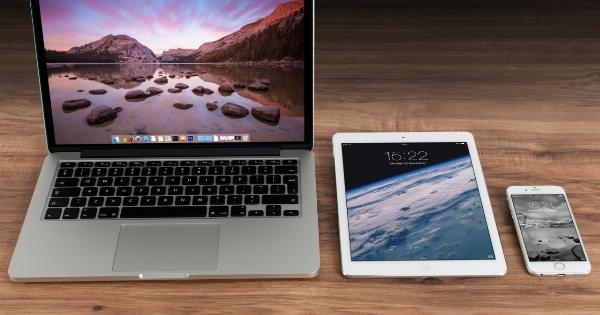Smartphones have become an integral part of our lives, keeping us connected to the world 24/7. While these devices offer numerous benefits, they can also have a negative impact on our productivity at work.
In this article, we will explore how your smartphone may be affecting your ability to stay focused and get things done efficiently in the workplace.
Distractions
One of the primary ways smartphones hinder productivity is through constant distractions.
Notifications from social media apps, emails, text messages, and various other applications constantly grab our attention, making it difficult to stay focused on the task at hand. With the urge to check our phones every few minutes, our concentration is broken, leading to reduced productivity and longer completion times for important tasks.
Procrastination
Smartphones not only serve as distractions but also enable procrastination. With these devices in our hands, we have easy access to games, social media platforms, and unlimited entertainment.
It becomes tempting to indulge in these activities, especially when we are feeling bored or stressed at work. However, this procrastination can lead to missed deadlines and lower overall productivity levels.
Multitasking Myth
Many people believe that smartphones help them multitask more efficiently. However, research suggests otherwise. Constantly switching between tasks and apps on your smartphone can actually decrease your overall productivity.
Our brains are not designed to handle multiple tasks simultaneously, and attempting to do so can lead to a decline in the quality of our work. It’s more effective to focus on one task at a time and allocate dedicated time to complete them.
Decreased Attention Span
The constant use of smartphones can have a negative impact on our attention span. With the instant gratification that comes from scrolling through social media feeds or playing games, our brains become accustomed to quick rewards.
This makes it difficult to concentrate on complex work tasks that require sustained focus and attention. Over time, our ability to stay engaged for extended periods diminishes, hindering our productivity.
Sleep Disruption
Smartphones emit blue light, which can interfere with our sleep patterns. Using smartphones late in the evening or just before bedtime can disrupt our circadian rhythm, making it harder to fall asleep and achieve restful sleep.
Lack of proper sleep can result in decreased energy levels and impaired cognitive function, ultimately impacting our productivity at work.
Increased Stress Levels
As smartphones connect us to the digital world at all hours, they can contribute to increased stress levels.
Constant connectivity can create a sense of pressure to always be available and responsive, blurring the boundaries between work and personal life. This continuous state of being “on” can lead to burnout and decreased productivity as our minds are constantly preoccupied with work-related thoughts and responsibilities.
Decreased Face-to-Face Interactions
Smartphones have revolutionized communication, but they have also reduced face-to-face interactions. Instead of having meaningful conversations with colleagues or clients, we often rely on quick messages or emails.
While these digital means of communication are convenient, they lack the personal touch and can lead to miscommunication or misunderstanding. Building strong relationships with coworkers and clients requires genuine interactions, which are hindered by excessive smartphone use.
Health Issues
Excessive smartphone use can contribute to various health problems, further impacting our productivity at work. Poor posture caused by constantly hunching over screens can lead to neck and back pain.
Additionally, excessive use of smartphones has been linked to eyestrain, headaches, and even reduced cognitive function. When our health suffers, it becomes increasingly challenging to be productive and efficient in the workplace.
Strategies for Improved Productivity
While smartphones can hinder our productivity, there are several strategies we can adopt to mitigate their negative impact:.
1. Disable non-essential notifications: Configure your smartphone to receive only important notifications during work hours. Minimize distractions by turning off unnecessary app notifications.
2. Designate phone-free periods: Set specific time intervals during the day where you keep your phone out of sight and focus solely on work-related tasks.
3. Use productivity apps: Leverage the power of productivity apps available for smartphones to help you stay organized, track your progress, and manage your time more effectively.
4. Practice time blocking: Allocate dedicated time blocks for specific tasks and avoid jumping between different tasks on your smartphone. Focus on completing one task before moving on to the next.
5. Establish boundaries: Clearly define boundaries between work and personal time. Avoid using your smartphone for work-related activities during personal time and vice versa.
6. Take regular breaks: It’s important to take short breaks throughout the day to recharge. However, make sure these breaks are not spent mindlessly scrolling through your smartphone.
Engage in activities that help you relax and rejuvenate.
7. Practice digital detox: Consider implementing regular periods of time where you disconnect from your smartphone completely.
Engage in activities that do not involve screens, such as exercising, reading, or spending quality time with loved ones.
By implementing these strategies, you can regain control over your smartphone usage and improve your productivity at work.





























